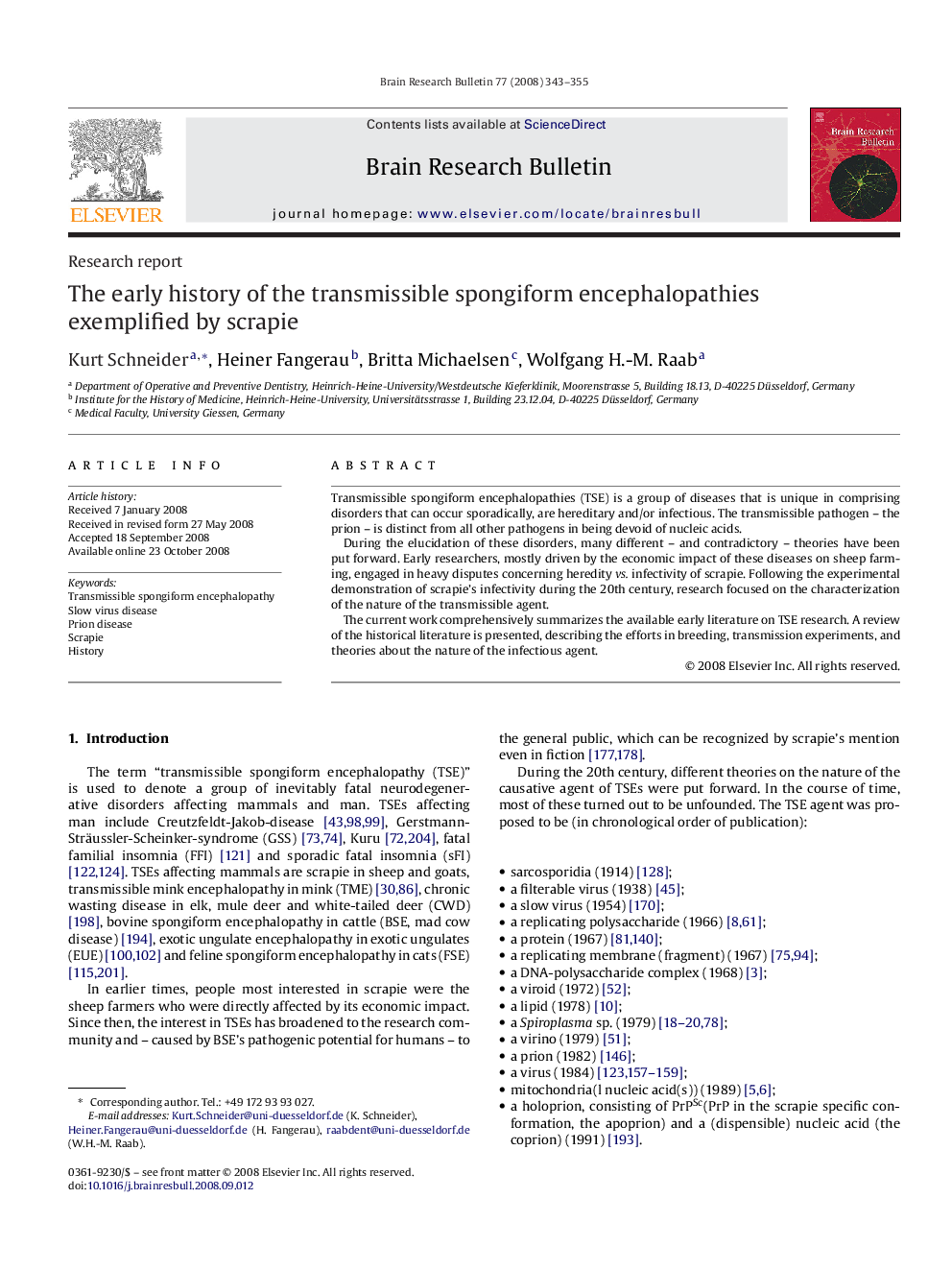| Article ID | Journal | Published Year | Pages | File Type |
|---|---|---|---|---|
| 4319882 | Brain Research Bulletin | 2008 | 13 Pages |
Transmissible spongiform encephalopathies (TSE) is a group of diseases that is unique in comprising disorders that can occur sporadically, are hereditary and/or infectious. The transmissible pathogen – the prion – is distinct from all other pathogens in being devoid of nucleic acids.During the elucidation of these disorders, many different – and contradictory – theories have been put forward. Early researchers, mostly driven by the economic impact of these diseases on sheep farming, engaged in heavy disputes concerning heredity vs. infectivity of scrapie. Following the experimental demonstration of scrapie’s infectivity during the 20th century, research focused on the characterization of the nature of the transmissible agent.The current work comprehensively summarizes the available early literature on TSE research. A review of the historical literature is presented, describing the efforts in breeding, transmission experiments, and theories about the nature of the infectious agent.
